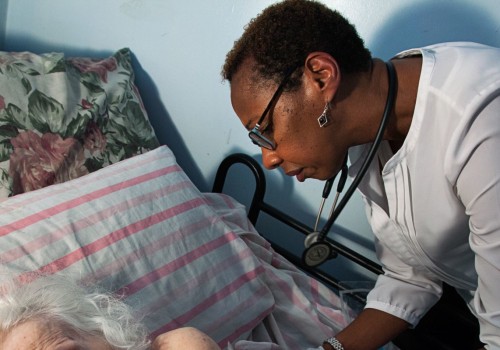Palliative care involves treating people who have a serious illness in which it is no longer possible to cure or completely reverse the disease and its process. End-of-life care is a part of palliative care that is aimed at the care of people who are nearing the end of life. Palliative care is specialized medical care for people living with a serious illness, such as cancer or heart failure. Patients in palliative care can receive medical care for their symptoms or palliative care, along with treatment aimed at curing their serious illness.
The goal of palliative care is to improve a person's current care by focusing on the quality of life of the individual and his/her family. Many insurance plans, including Medicare and Medicaid, offer some coverage for hospice and palliative care. However, coverage amounts and requirements vary. In most cases, a person is only eligible for hospice care if their life expectancy is 6 months or less.
A doctor must certify that they have a terminal illness and that they have a short life expectancy. For people with private insurance, coverage varies from one insurer to another. If coverage is insufficient, a person can verify eligibility for Medicare or Medicaid. However, palliative care does include caring for people nearing the end of life, sometimes called end-of-life care.
Palliative and end-of-life care is intended to help you if you have a life-limiting or life-threatening illness. The focus of this type of care is to manage symptoms and provide comfort and assistance. This includes help with emotional and mental health, spiritual and social needs. Palliative and end-of-life care also provides hands-on help with daily tasks.
The goal is to improve their quality of life and that of their family, friends and caregivers. End of life and palliative care are based on what your needs are, not your diagnosis. If you have a disease that cannot be cured and that will take you to the end of your life, you will be suggested end-of-life and palliative care. This aspect of hospice palliative care refers to care provided during the terminal and end of life.
Because more than 90 percent of hospice care is paid for through the Medicare hospice benefit, hospice patients must meet Medicare eligibility requirements; palliative care patients do not have to meet the same requirements. In most cases, a person is only eligible for hospice care when their estimated life expectancy is 6 months or less. Palliative care and end-of-life care are similar because both relieve pain, increase comfort and improve quality of life. While the goal of hospice and palliative care is pain and symptom relief, the prognosis and goals of care tend to be different.
Hospice care is provided at home or in home-like hospice homes, nursing homes, assisted living centers, veterans centers, hospitals, and other facilities. She thought she had lived a long and good life and didn't want to undergo dialysis, so Dolores started receiving palliative care. Medicare usually pays for all costs associated with hospice care, with the possible exclusion of some medications. The main difference between palliative care and end-of-life care is that end-of-life care is for people diagnosed with a terminal illness who have six months to live or less, while palliative care is for people at any stage of serious illness, including from the day of diagnosis, and therefore continue to seek curative treatment.
You may also receive palliative care along with treatments, therapies, and medications aimed at controlling your disease, such as chemotherapy or radiation therapy. Family members or friends who care for you can also access support from palliative care and end-of-life services. The goal of palliative care is to help you have a good quality of life, which includes being as good and active as possible in the time you have left. Some people receive palliative care for years, while others will receive care in their final weeks or days.
Palliative and end-of-life care staff can help you decide what care you need, if it is likely to enter the last year of your life. Palliative care is provided by palliative care staff who are trained with specific skills and knowledge to help you, your family, and caregivers. . .












